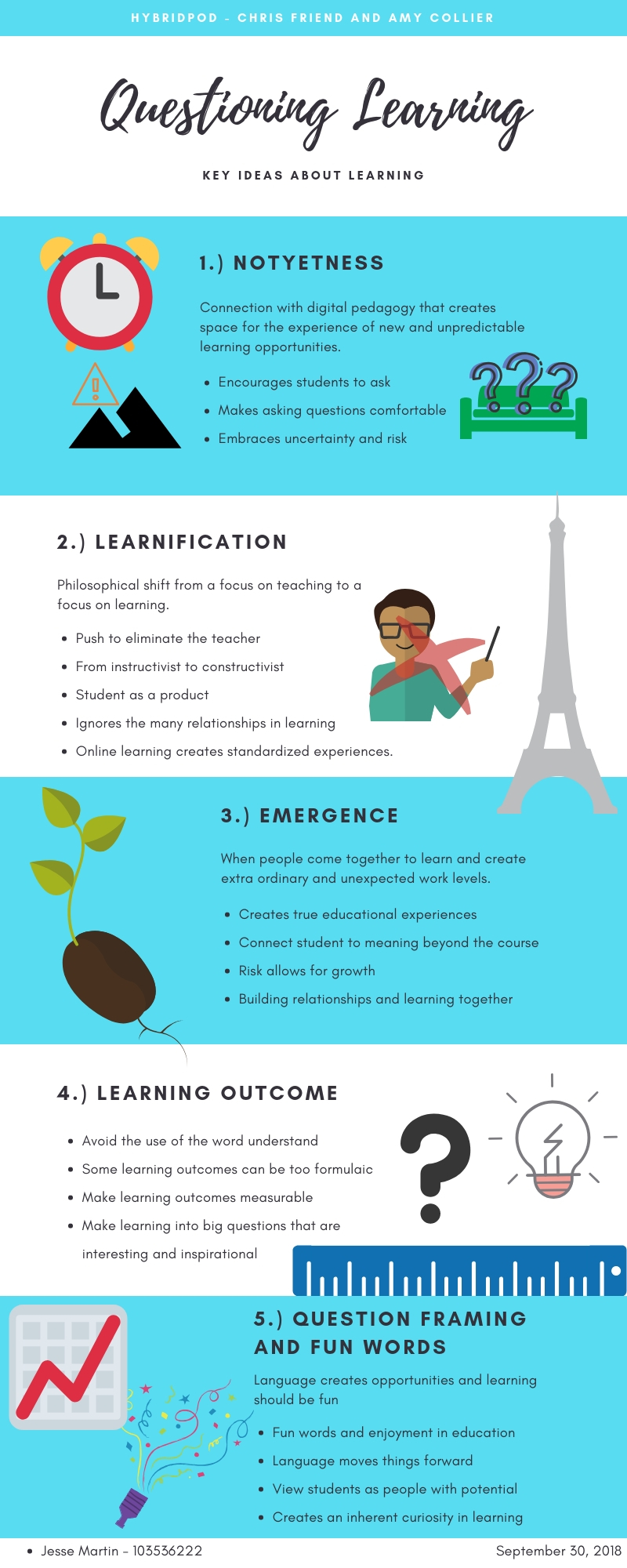I chose to respond to the HybridPod – Questioning Learning by Chris Friend and Amy Collier. This podcast touched on a few key ideas that challenged today’s push for learnification. They used the concept of notyetness to encourage students and educators to ask questions that oppose the norm. I agree with the push to ask more questions. Students have to feel comfortable enough in their learning environment that they would be willing to take a risk to ask a question. In the infograph images were added to emphasize the risk in education and the focus on asking questions. Furthermore they added that there is value in embracing uncertainty. I do not believe that there is a right answer to every question, however I do believe that asking the question can promote conversation and perhaps reach the point of emergence which they discussed later in the podcast. In the podcast the term learnification was defined as the paradigm shift from teacher centered learning to student centered learning. It was also described as a shift from an instructivist focus to a constructivist focus.
Interestingly enough, as we learned about the shift from standardization, I used a template as my medium for this product. An attempt was made to increase interest and foster inspiration by adding photos to support the information written.
They outlined a number of issues with this new perceived best practice. When they discuss best practice they use it synonymously with the idea of standardization or overlooking individualized learning. They added that removing the teacher from the classroom, which is a major focus in the learnification push, is not the answer. I like that Amy and Chris challenged the way education is heading. In my opinion, educators have huge impacts on how students learn and they tend to be the ones to individualize the learning opportunities. They supported their idea by saying that the relationships that students create in the classroom with their classmates and with the teacher leads to a state of emergence. Emergence was described as a state that is reached when people come together and challenge each other to create extraordinary learning opportunities. In my practicum, I have seen that similar to the idea of two heads are better than one, working together often pushes people beyond their limits.
Ultimately, Amy and Chris emphasized the importance of the relationships that are built and leaned on in learning as well as the significance of fostering interest and inspiration. This can lead to true educational experiences and opportunities to connect students to meaning outside the course. I have noticed in my experience that there are students that could really benefit from being connected to some future aspirations or purpose beyond the classroom. This idea of emergence and inspirational learning outcomes can lead to that. Given that language is opportunity, Amy and Chris highlight the importance of properly framing questions and using fun language as fun fosters learning opportunities. I have seen it firsthand that when students are having fun they are more likely to take risks, and as mentioned in the podcast, taking risks is a huge aspect of education.

